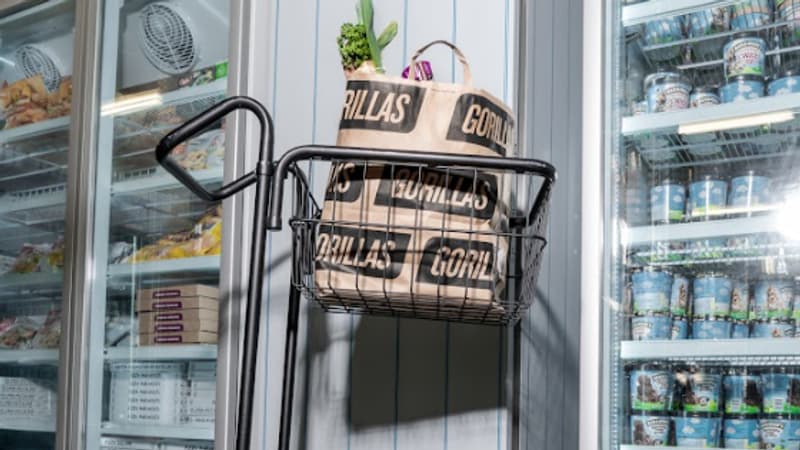From an effervescent market made up of a multitude of companies, the fast home delivery (or fast trade) sector has recomposed itself in less than a year, already counting on a handful of players in Europe.
Last episode of this Friday with the announcement of the takeover of the German gorillas by the Turkish precursor Getir. The amount of the transaction was not specified.
Earlier this year, Germany’s Flink bought French competitor Cajoo while Gorillas had offered France’s Frichti.
In a world of uberization at all levels and home delivery for anything and everything, the growth prospects for these players were solid, even stratospheric.
Gorillas are half worth
Enough to achieve a colossal fundraiser. In 2021, Gorillas was still worth 3 billion euros, and Getir 12 billion euros last March.
Today, at the end of this last operation, Getir would be worth 2,000 million less and Gorilas half that (1,200 million dollars).
What happened? The economic model has never really been validated with significant costs in logistics and personnel.
Hence a forced consolidation in the sector of just two years to achieve economies of scale and finally achieve profitability. While other players like Zapp, KOL or even Yango Deli have ceased their activity in France. 11 actors had started in France, so there are more than two.
Potential but obstacles
But is it enough? Accustomed to very low or even free shipping costs for many products purchased online, consumers are less inclined to accept high shipping costs for expedited trade services. Even if the delivery takes place in a quarter of an hour. The activity of these actors is therefore quite limited, too limited to support several actors.
On the other hand, several studies show that the potential is still there. According to panelist Iri, in the first half of 2022 fast trade represented 174.5 million euros in turnover compared to 122 million for all of last year.
However, other obstacles stand in the way of these actors. The big cities now take a dim view of these actors who set up their dark shops in the heart of the cities (there are 45 in Paris alone), causing nuisance (ballet of delivery guys on scooters) and occupation of commercial premises that could be used for shops. open to the public
To evict them, the municipalities consider these deposits as an activity of illegal occupation of commercial premises.
timid investors
“The mayors have won and since there are many of them, the platforms will have to adapt on a case-by-case, city-by-city basis, Frank Rosenthal believes. This legal setback is a very strong restriction on fast trade, signing may even be the end of it. If a platform has a billion euros to invest, it is certain that it will not put them in France,” he explained to BFM Business, a consultancy specialized in trade.
Then, the economic and geopolitical context changed. In the inflationary context of rising interest rates, investors are cautious and players must show that they can be profitable. This leads to these accelerated acquisitions, closures, business stoppages in certain countries, and numerous layoffs.
Investors “no longer want to support companies that want to grow at all costs,” Clément Genelot, a specialist in the retail sector at Bryan, Garnier & Co., told AFP in June.
Fast traders are cutting their workforce or withdrawing from certain countries “because they know it will be harder to raise money” to finance their growth.
Source: BFM TV


